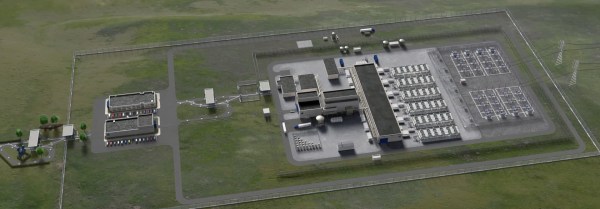Intended to be the first 6-unit deployment of NuScale’s 77 MW VOYGR small modular reactors (SMRs), the Carbon Free Power Project (CFPP) in Utah was scheduled to begin construction by 2025 on the grounds of the Idaho National Laboratory (INL), yet it has now been canceled by NuScale (press release) after not finding enough utilities interested in purchasing power from the nuclear plant. This led NuScale and UAMPS (Utah Associated Municipal Power Systems) to back out of the CFPP project.
To be clear, it seems this decision neither reflects on SMRs as a whole, nor NuScale’s prospects. Currently NuScale still has a number of projects which it is involved in, including the use of its SMR technology with the Polish copper and silver producer KGHM Polska Miedź SA. Demand for SMRs is also being flooded with various designs by both established and start-up companies, with TerraPower’s Natrium reactor seeing additional demand, including at the Kemmerer site in Wyoming.
Meanwhile, the European Commission is establishing an SMR Industrial Alliance, and countries like Norway are looking to build their first nuclear plants using SMRs, which includes Danish Seaborg’s molten salt reactor. In the end it should be clear that whether a singular infrastructure project works out economically or not depends on many factors. This can also be seen with e.g. wind farm projects, where Danish Ørsted canceled two large US offshore wind projects, Swedish Vattenfall abandoned its new British offshore wind project due to rising costs and Siemens Energy is having to borrow billions of Euros to patch up financial holes in its Spanish wind turbine unit.












